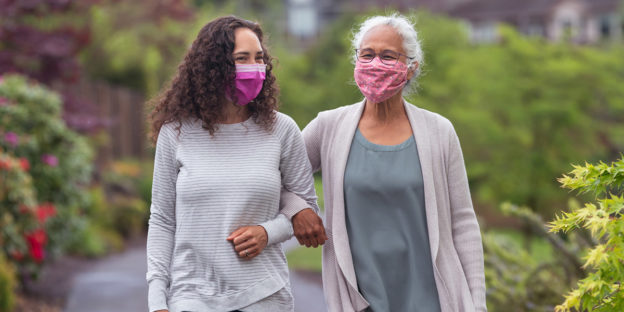The Covid pandemic has been very hard for everyone, and especially for women who are vulnerable and forced to lockdown at home. For such women, the lockdown restrictions have made it all the more difficult to have access to social services and healthcare. Often stuck at home with their abusers, with children, other dependents seeking support and help outside has been next to impossible. Thus, often women turn to substances like drugs & alcohol as an escape. Research has suggested that women seeking treatment from various countries (United States, Brazil, United Kingdom) tend to be younger, come from low income groups, involved in the justice system, and lonely housewives. Also, women face various obstacles when accessing treatment, have more difficulties at the beginning of treatment, and are prone to experience more severe problems and thus tend to seek help at mental health facilities rather than in substance abuse treatment centres.
There are many factors that may challenge women in different societies to openly admit to and seek help for drug & alcohol addiction.
One of the reasons could be the stigma associated with addicts in general and even more so in certain societies which could be patriarchal, double standards & expectations in the media related world, pressures of keeping up with celebrity spouses. Such social challenges are extremely common in most societies around the world. Research by Brady & Ashley (2005) has shown that women typically face more barriers to seeking treatment than men, and women are more prone to stigmatization. Women also face more logistical issues to seek regular treatment, such as transport/travel, time away from family responsibilities. Early studies by Beckman & Amaro (1986) have suggested that women are also more likely to be discouraged by family members and relatives to go and seek treatment. Research has also suggested that women are more likely to have mandated treatment referred by social workers than men (Grella & Joshi 1999) where as men are more likely to have compulsory treatment referrals by their employers, criminal justice systems and their families. Further, studies (Westermeyer and Boedicker 2000; Arfken et al. 2002) have shown that also access to treatment for women has greatly improved over the years, women are still less likely than men to seek treatment). They are also less likely to complete treatment once they have started. Data derived from the National Survey on Drug Use and Health (NSDUH) in 2015 illustrates 5.7% of women suffer fro substance abuse in the United States of America. Similarly during the same year, data from NESARC also showed that 3% of women experience suffering from drug abuse while 10.4% from alcohol abuse disorder. Substance disorders experienced by women has been known to advance faster in women than in men, and women in such cases are more vulnerable to relapse and giving in to cravings. Physiological differences also facilitates speed of addiction in women as they absorb and metabolize drugs and alcohol in a different way than men. Women are also more susceptible to anxiety, depression and eating disorders which form along with alcohol & drug addiction.
Another obstacle to receive treatment comes in the form of a financial challenge. Not everyone is able to afford in patient/ residential rehab treatment. Many women from low to middle income backgrounds are not able to find the financial support and assistance required to afford such long-term treatments. On the other hand, many women who belong to more affluent families are dependent on their spouse for financial support and often live in a controlling environment, sometimes even abusive. Women in high pressure career environments are often subject to gender inequalities leading to gaps in pay, lower wages etc. which then limit financial support available for them to look for good quality treatment.
The U.S. National Pandemic Emotional Impact Report explored the different levels of impact due to the pandemic on men and women. It was suggested that women often faced more stress being at home due to the additional responsibilities of family care due to childcare centres and schools being shut. Women were more inclined to take on more household chores, caregiving tasks etc. than men.
During the pandemic, many countries have untaken various initiatives to support victims. For instance, some countries have made support available at pharmacies where women can reach out and ask for help in a safe manner.
At the Ho Tai Way, the luxury residential program for women, offers an all-round package that addresses most of these challenges for women dealing with effects of trauma. The Ho Tai Way has experienced professionals who will come up with customized & tailor-made treatments that will be suited to a client’s requirements.
Discover the unique treatment options for women at the Ho Tai Way School of Recovery based in Costa Mesa, California. This leading rehabilitation center for women is designed to assist professionals recover in an environment, which is constantly evolving, interactive and enhances self discovery.
References:









